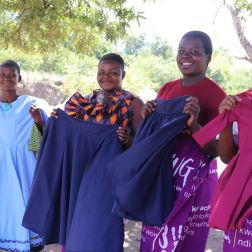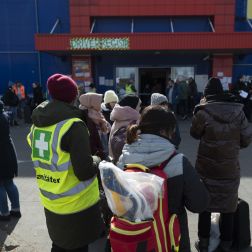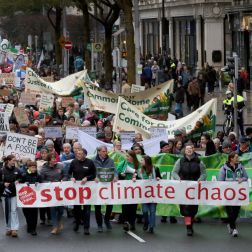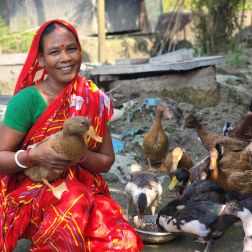- 4 mins read time
- Published: 21st April 2020
Earth Day 2020: COVID-19 and Climate Emergency harshly exploit our unequal world.
Today is International Earth Day – one that we will remember against the backdrop of a global pandemic that has shown how interconnected our world and the people living in it are.
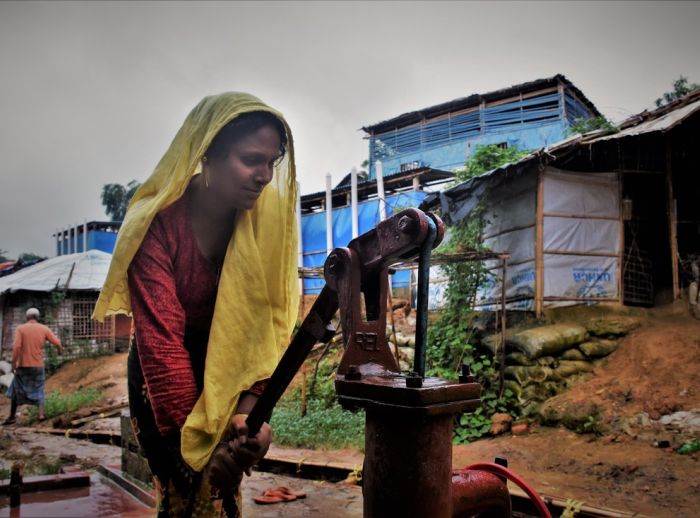
This year’s theme is the climate crisis – “the biggest challenge to the future of humanity and the life-support systems that make our world habitable.” Yet, moves to address the climate crisis have been lackluster at best and any sense of urgency to act – championed by our young people – now seems to be waning as the climate crisis does not threaten our immediate survival, unlike COVID-19.
With each day, more of us are being personally affected by the coronavirus. In every family, community and country, wherever we may be, we know we must take care of each other.
It threatens us all, but it endangers people living in poverty and vulnerable situations the most - exposing and exploiting the extreme inequalities that define our world – much in the same way as the climate crisis does.
While the richest in countries across the globe have access to healthcare and cash to get by, most of humanity faces both of these crises with neither. One in two people struggle daily to survive, and changing climates have grossly impacted millions of lives this year alone – locusts, lack of food and water, extreme weather events collapsing homes and livelihoods, and bush fires. Our recent research shows that the economic fallout from the coronavirus pandemic could push half a billion more people into poverty, setting the fight against poverty back by up to 30 years in some parts of the world, including Africa. Not only will this make it more difficult to rebuild post-virus, but it will also greatly reduce poorer countries’ ability to respond to climate change.
As a network that fights inequality to end poverty and injustice in more than 90 countries, Oxfam is doing its part to tackle the coronavirus. We’re working non-stop to support the most vulnerable – delivering clean water, sanitation and public health promotion programmes, ensuring people have food to eat and getting cash to those most in need, among other life-saving initiatives. More than ever we rely upon the compassion and generosity of supporters new and old to do so.
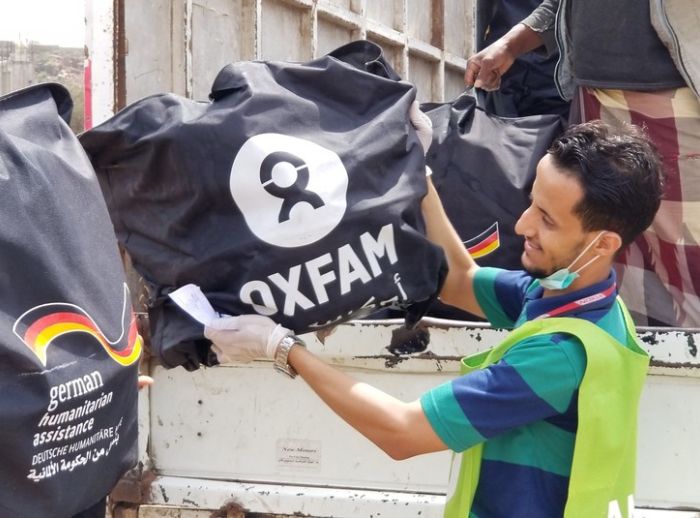
We know that only ambitious political action by our governments – acting together – can overcome this crisis. Many governments are acting quickly, but within their borders. We need governments to scale up their response to levels never seen in our lifetimes. They must unleash a global public health and emergency response to save lives, and the largest ever economic stimulus for people to help their families through this crisis.
Every government, institution and person must play its part and those with the broadest shoulders should bear most of the cost - we need suspension and cancellation of poorer nations’ debt payments.
We’re indebted to all frontline workers - health workers and humanitarians, carers, supermarket workers and neighbours – and all those who we now rely upon to hold up our world. We’re in this together - to stop a catastrophe and to shift irreversibly towards a sustainable, more equal and kinder world.
Most importantly, when we overcome the threat of COVID-19, we need to mobilise the same level of political and public will and compassion to begin the process of rectifying the harm we have caused our planet and environment and kick start a future that offers hope for everyone.
Let’s hope that Earth Day 2020 marks a turning point and we move forward together to beat poverty and inequality, and for a sustainable and fair world for everyone woman, man and child.

This disease knows no borders and does not discriminate. For the world’s poorest and most vulnerable, the worst is yet to come as the coronavirus begins to establish itself and spread quickly through communities powerless to stop it, without access to water, sanitation or healthcare.
Together, we can save lives.
